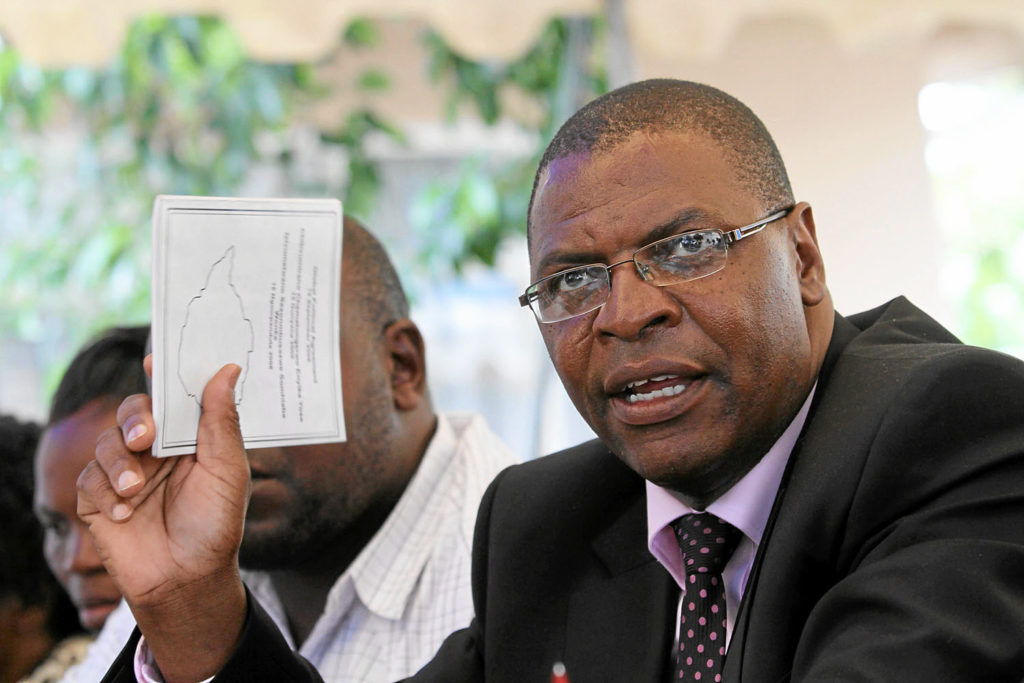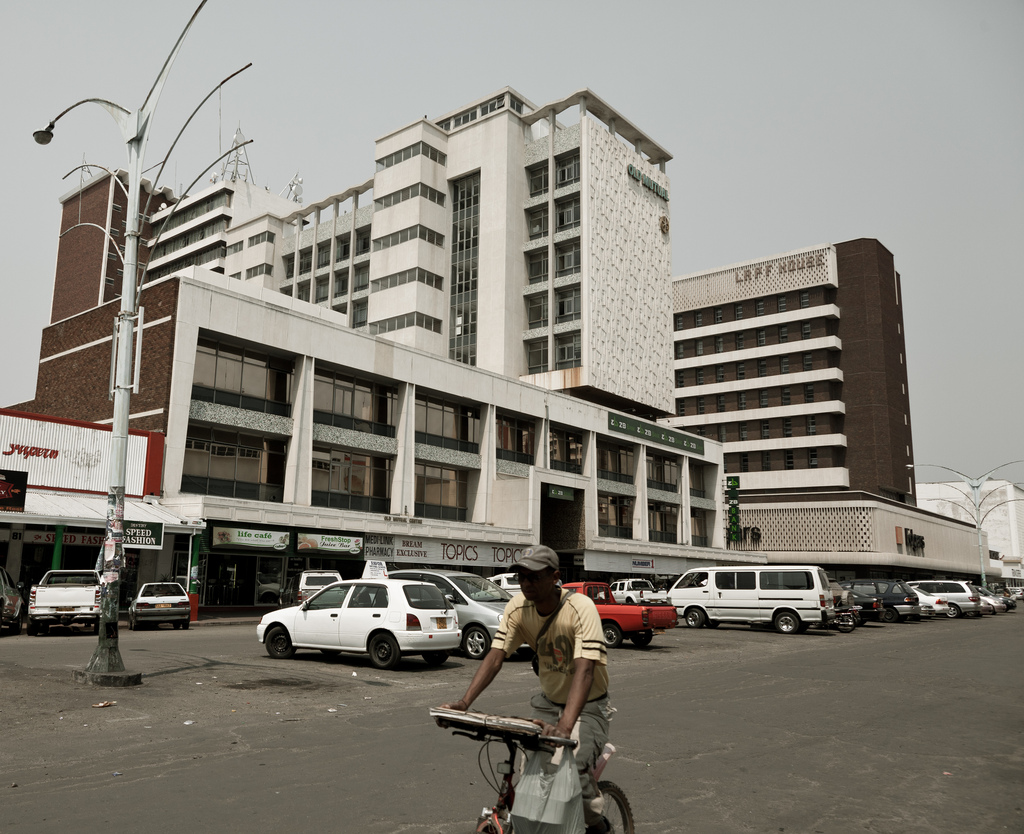In Makokoba’s Stanley Square in Bulawayo, voters braved chilly morning temperatures to cast their vote in Zimbabwe’s election on Wednesday. A long winding queue of men and women snaked outside the fenced polling station as voters patiently waited for their turn. There is very little conversation that goes on in the queues – perhaps it’s the cold or perhaps voters are wary of the next person’s political affiliations.
Despite widely held anticipation that this election would draw scores of young voters – the youth make up 60% of Zimbabwe’s population – the elderly were in the majority in the queue here at Makokoba.
About five policemen were been deployed at the Stanley Square polling station. Across the road, St Patricks – another polling station – was deserted as voters came to “the square” to cast their ballot.
One officer with bloodshot eyes scanned the crowd of voters with a menacing look. Another, who appeared to be the head of the police deployed here, told journalists to join the police force so they too can wear long grey winter coats. He proudly showed off his to the reporters shivering in the cold. A few laughed, but he was largely ignored as they were more concerned with the arrival of Welshman Ncube, the leader of a smaller faction of the Movement for Democratic Change (MDC).

Ncube’s office had earlier sent out text messages saying he would cast his vote at 9.30am at the square. This is also where he addressed thousands of his supporters at his final rally in Bulawayo last Sunday. By 10am, Ncube had still not arrived. Reporters muttered that politicians are never on time, that they’re ever eager to make a grand entrance while everyone’s eyes are on them. While they waited, a few cars passed through with officials from the MDC inside.
Finally, at 10.20am a three-car convoy pulled up at the polling station. Ncube stepped out. Voters in the queue watched curiously as the opposition leader was hounded by reporters eager to get pictures and a comment.
Makokoba, the oldest township in Bulawayo, has been a stronghold of the MDC led by Prime Minister Morgan Tsvangirai for the past 13 years. All parliamentary candidates vying for the Makokoba seat are confident that they have strong chances of winning.
After a short wait inside, Ncube cast his vote as officials from the Zimbabwe Electoral Commission watched.
Speaking to the media afterwards, he gave the entire election process his stamp of approval despite the concerns raised by the MDC over the past few weeks. “If everyone who turns up to vote is allowed to vote and the peaceful environment prevails, that’s what matters at the end of the day,” Ncube said before bidding everyone goodbye.
Cold and hungry, I jumped into the car for warmth and got ready to leave. There was still a queue of voters waiting to cast their ballot. Despite the biting cold, their determination was clearly visible on their faces – they’ll soldier on and exercise their democratic right.
Ray Ndlovu has been a correspondent for the Mail & Guardian in Zimbabwe since 2009. His areas of interest include politics and business. With a BSc honours degree in journalism and media studies, he aspires to become a media mogul.

